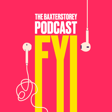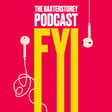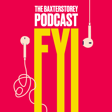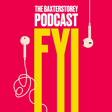
S2:EP6: Leading through Active Allyship with Katharine Dixon
Our second episode of our Pride take-over with Shine is hosted once again by Sean Marcs (He/They) This episode focuses on the power of LGBTQIA+ Allyship and the critical role leaders play as allies both in and out of the workplace, not just during the PRIDE Season but every day.
Our host Sean is joined by Katherine Dixon (She/Her), LGBTQIA+ Ally and General Manager at BaxterStorey.
Together, they delve into active allyship, its profound impact on LGBTQIA+ people, and how you can better lead in allyship for all.
Tune in now and join the conversation!
Stonewall LGBTQ+ Allies Programme - Stonewall LGBTQ+ Allies Programme | Stonewall
Inclusive Employers - Inclusive Employers - experts in workplace inclusion
We Create Space - WE CREATE SPACE | Community, Platform & Consultancy








